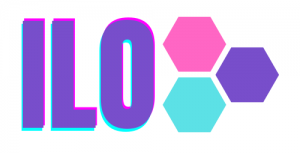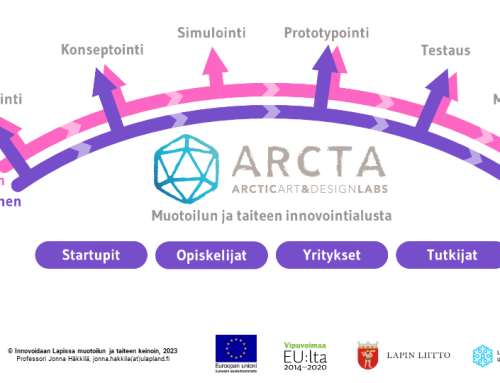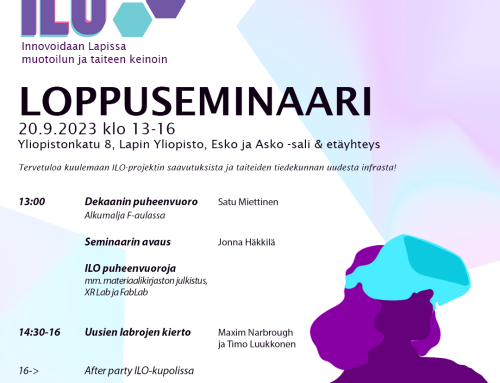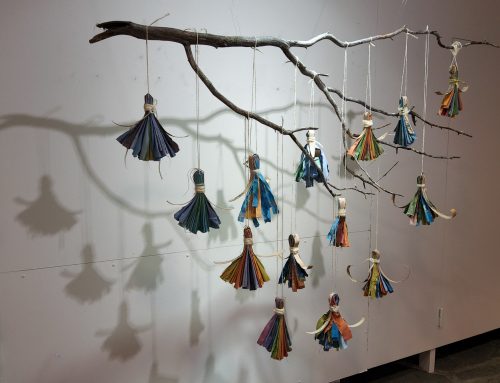As part of benchmarking activities for the development of the University of Lapland’s startup services and ILO development project, designer Maxim Narbrough and Start-up and Innovation Specialist Paula Kassinen visited several startup centers in and around Helsinki. The centers visited included Helsinki Innovation Services (HIS), Aalto University Startup Center and Metroplia’s Turbiini incubators.
The first meeting was with Jari Strandman, CEO at Helsinki Innovation Services. Jari gave an excellent and focused presentation of the center’s service model and activities. HIS is a limited company owned by the University of Helsinki. Their incubator and accelerator services help to create spinout companies from research conducted at the university. The center focuses on the bioscience and medical sectors. After initial evaluation of intellectual property and commercial potential of projects, HIS assists with building teams, finding funding and investors, and dealing with licensing issues. Their network of experts have helped to build numerous biotech companies, the more prominent ones being Nasdaq-listed.
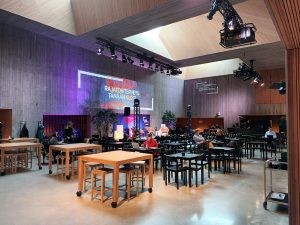 The event space at the University of Helsinki’s Think Corner, where Helsinki Innovation Services is based.
The event space at the University of Helsinki’s Think Corner, where Helsinki Innovation Services is based.
The second visit was to Aalto University Startup Center, where Business Advisor Timo Rossi gave an excellent and thorough tour around their facilities. Timo talked us through their incubator and accelerator services, providing details of how they help pre-startups and early-stage startups to develop and flourish. Their focus is on supporting research-based and innovative deep-tech startups, typically from an initial idea through to early stage funding rounds. Their innovation scouts help researchers to identify commercial potential of their innovations, and then help build teams to grow and scale up. Their activities are also heavily focused on sustainable technologies.
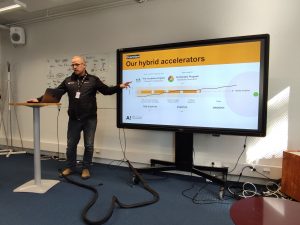
Timo Rossi describes how the hybrid incubator-accelerator at Aaalto University Startup Center operates.
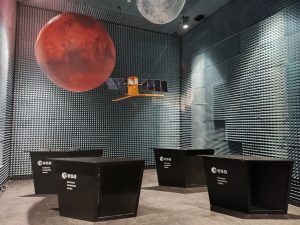 The European Space Agency pitching room at the Aalto University Startup Center.
The European Space Agency pitching room at the Aalto University Startup Center.
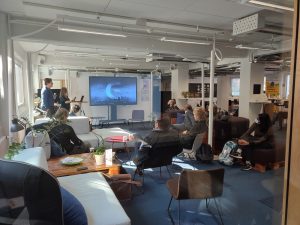 A presentation in progress at Aalto University Startup Center.
A presentation in progress at Aalto University Startup Center.
Community director, Edvin Ingman, gave us an introduction to the student run Startup Sauna, which is home to the Aalto Entrepreneurial Society (Aaltoes) and several other organizations active in helping startups. The community run space hosts talks, hackathons and other events, serving as a co-working space for startup entrepreneurs and students. We were also lucky to enjoy an impromptu tour of the Aalto Design Factory (ADF) by the super friendly Felipe Gárate. ADF is an open learning hub for students, researchers and industry professionals, focused on product design and development. The hub is host to a vibrant community, including a number of startups who share the facilities.
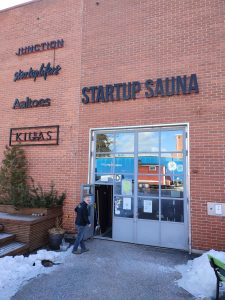
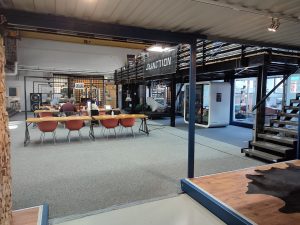
Startup Sauna, a co-working space and home to Aaltoes, Startuplifters, Kiuas and Junction.
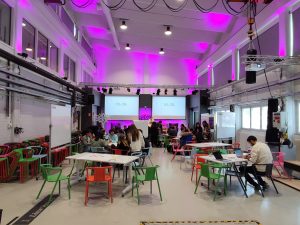 A hackathon taking place at Design Factory’s “The Stage”. Their largest space, used for events and workshops.
A hackathon taking place at Design Factory’s “The Stage”. Their largest space, used for events and workshops.
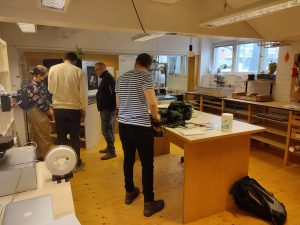 The 3D-printing workshop in the basement of the Aalto Design Factory.
The 3D-printing workshop in the basement of the Aalto Design Factory.
Our last day was spent at the Arabia and Myylypuro campuses of Metropolia University of Applied Sciences, learning about their Turbiini Campus Incubator services. We were given a detailed presentation of their services by Hannes Jesar, Ulla Vehkaperä, and Sara Jokiniemi, at the Arabia campus. The Arabia campus houses the new Helsinki XR Center (HXRC), which serves as an incubator for startups in augmented and virtual reality. We were given a tour and presentation of the center’s services by Hannes, who acts as the Turbiini project manager.
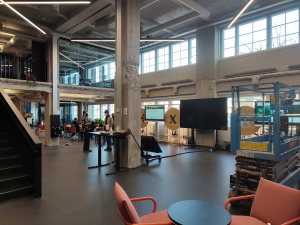
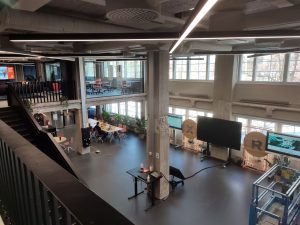 The central work space of the Helsinki XR Center, at Metropolia’s newly refurbished Arabia campus.
The central work space of the Helsinki XR Center, at Metropolia’s newly refurbished Arabia campus.
Our last stop was at the HyMy Village, at the Myllypuro campus, an impressive purpose-built multidisciplinary learning and development environment, for health and well-being services. Ulla showed us around the state-of-art facilities, which include a broad range of labs for healthcare training and development. She keenly elaborated on the partnerships and collaborations the facility benefits from.
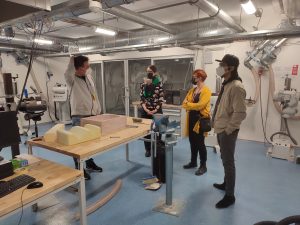 Lecturer Toni Nisula showing us the prosthetics and orthetics lab at HymyKylä.
Lecturer Toni Nisula showing us the prosthetics and orthetics lab at HymyKylä.
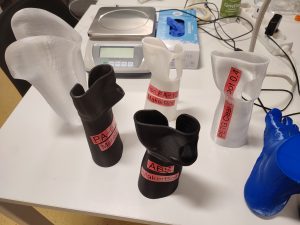 3D-printed orthotics displaying the properties of different printed materials.
3D-printed orthotics displaying the properties of different printed materials.
The visits as a whole, were highly useful in illuminating the similarities and differences between operating models of the various institutions. They provide us with many ideas and talking points for the development of a strategy and operating model, for startup incubation activities at the University of Lapland. We gained an excellent overview of how startup centers are organized and operated, and were also inspired by the community driven startup hubs such as those at the Design Factory and Startup Sauna.
Thank you to everyone who spared us their time and showed us around!
